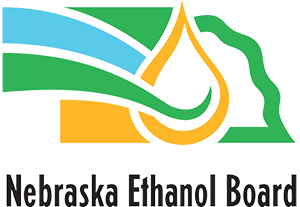In the past five years, fuel retailers across Nebraska have joined forces to raise more than $45,000 for cancer research as part of Fuel the Cure – a campaign that also educates others about healthier fuel options.
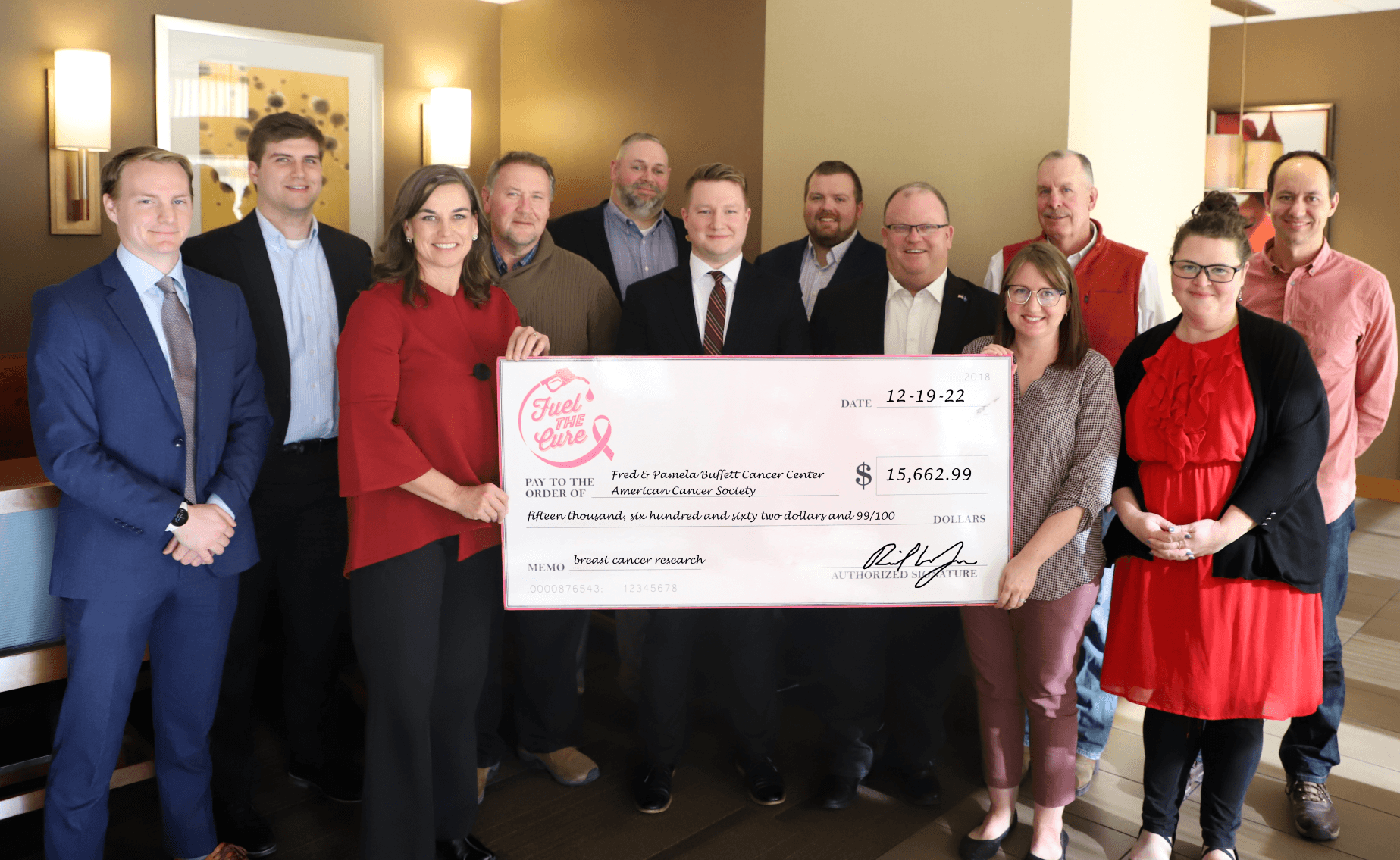
During October, when drivers chose higher blends of ethanol fuel like E15, E30 and E85 at participating retail locations, gas stations donated 3 cents for each gallon sold toward cancer research. Ethanol is a natural, plant-based octane booster used to displace some chemicals in gasoline which have been linked to cancer, heart disease, and respiratory issues. Ethanol producers, including Siouxland Ethanol in Jackson and E-Energy in Adams, also donated to the cause. This year, Fuel the Cure raised $15,662.99 with donations going to the Fred & Pamela Buffett Cancer Center in Omaha and Nebraska’s American Cancer Society.
“Several medications, whose research was funded through the American Cancer Society, saved my life,” said Jenn Klein, a wife, mother, and breast cancer survivor. “I’m thankful funding was available to discover treatment before I needed it. Beating cancer wasn’t easy, but we have come so far in regard to treatment, that I was not alone, and I had hope throughout.”
When Klein was diagnosed with breast cancer at the age of 32, her cancer cells were growing and dividing at a rate of about 80%. Treatment was needed immediately. A funded researcher discovered two of the four chemotherapy treatments she underwent.
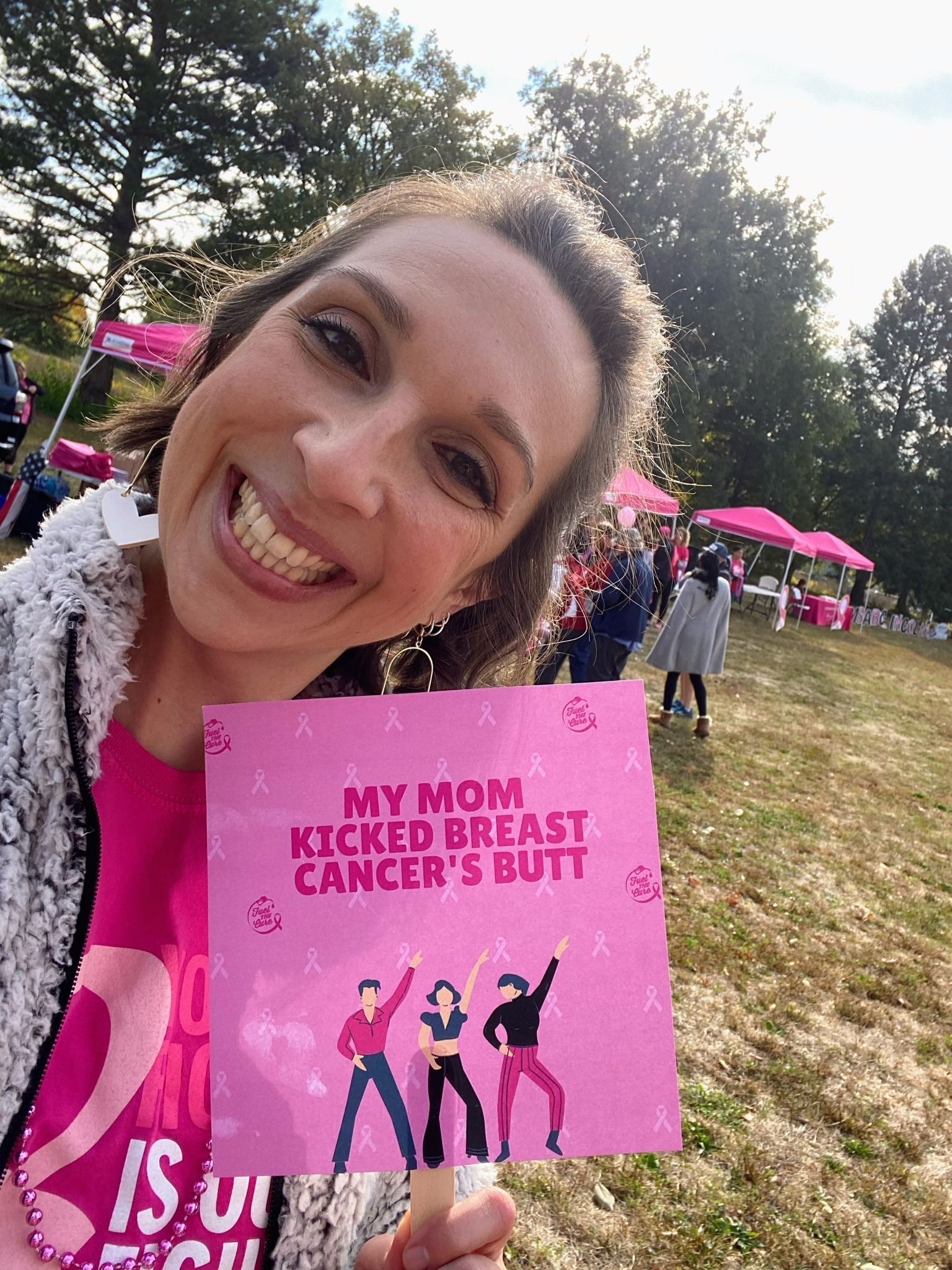
Jenn Klein and her mother are breast cancer survivors.
Everyone is at risk of inhaling toxic chemicals, known as aromatics, used for octane in gasoline. These carcinogens make up 25% of a gallon of gas. You are exposed at the pump, from vehicle exhaust, and when these aromatics are released as greenhouse gases (GHG). According to Cancer.org, the link between benzene and cancer has largely focused on leukemia and other cancers of blood cells. The Center for Disease Control (CDC) says benzene causes cells not to work correctly. For example, it can cause bone marrow not to produce enough red blood cells, causing anemia. Also, it can damage the immune system by changing blood levels of antibodies and causing the loss of white blood cells. Another major source of benzene exposure is tobacco smoke. Learn more about the health risks of the aromatics in gasoline at fueledbynebraska.com/pink.
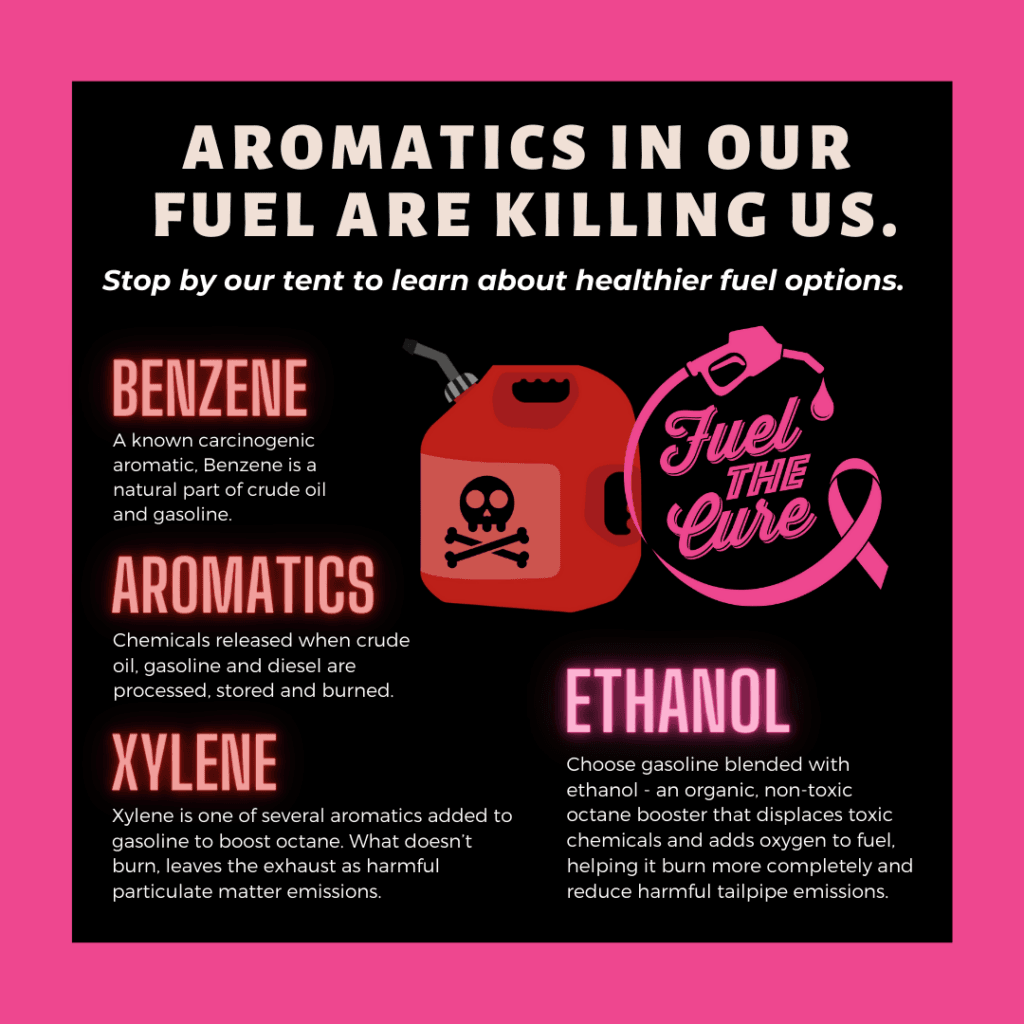
The Environmental Protection Agency (EPA) classifies these chemicals as toxic air pollutants known to cause cancer, adverse reproductive effects, and other health issues. In 1978, the EPA’s Clean Air Act waiver allowed the use of 10 percent ethanol in gasoline to support efforts to reduce air pollution. The EPA still blends ethanol into the fuel supply to support these efforts. Ethanol is a natural, plant-based octane booster used to displace some of these chemicals which have been linked to cancer, heart disease, and respiratory issues. Overall, according to Harvard and Tufts universities, ethanol reduces GHG by nearly 50%. Choosing the right ethanol blend for your vehicle is important. Fueledbynebraska.com explains each blend and has a biofuel finder for locating retailers near you.
“Ethanol producers and sellers have been the biggest proponents of providing an environmentally friendlier way to power our vehicles for many years,” said Jessica Sodeke, communications and outreach manager for the Nebraska Ethanol Board. “We commend these retailers for making higher ethanol blends available and giving consumers a choice in the effort to reduce greenhouse gas pollution. Supporting Fuel the Cure is a step beyond, because the funds are directly impacting the lives of Nebraskans.”
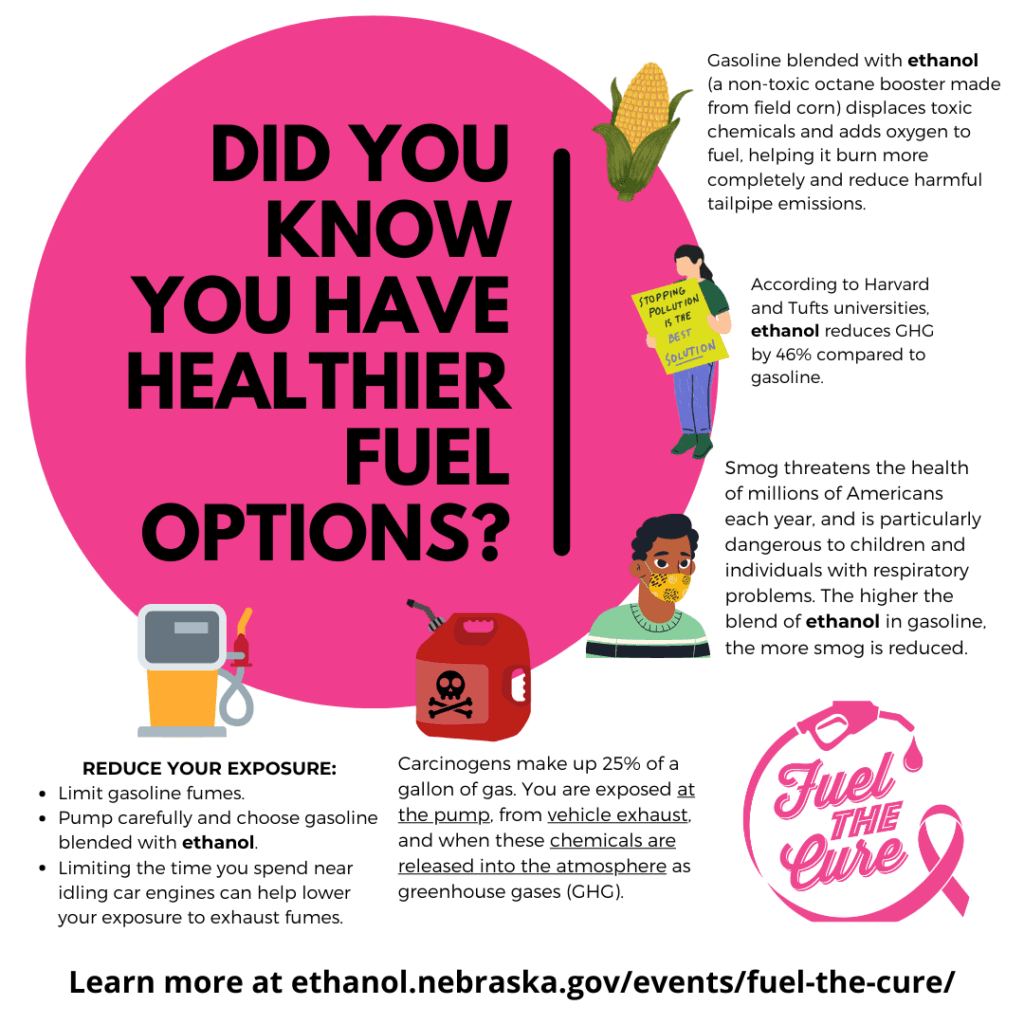
Drivers who choose ethanol at the pump often see a price break, and their use of ethanol supports Nebraska’s rural communities and the state’s economy. To find a location near you, visit fueledbynebraska.com.
“Fueling up with higher blends of ethanol, like E15, E30 and E85, is one of the easiest ways consumers can reduce their carbon footprint and create a healthier environment for everyone,” Sodeke said.
E15, also called Unleaded88, is approved for use in passenger vehicles 2001 and newer. Nebraska has approximately 200,000 registered flex fuel vehicles, which can run on any blend of ethanol up to E85 (85% ethanol and 15% gasoline). Drivers can check their owner’s manual to see if they’re driving a flex fuel vehicle. The vehicle might also have a flex fuel badge on the trunk or tailgate — or a yellow gas cap.
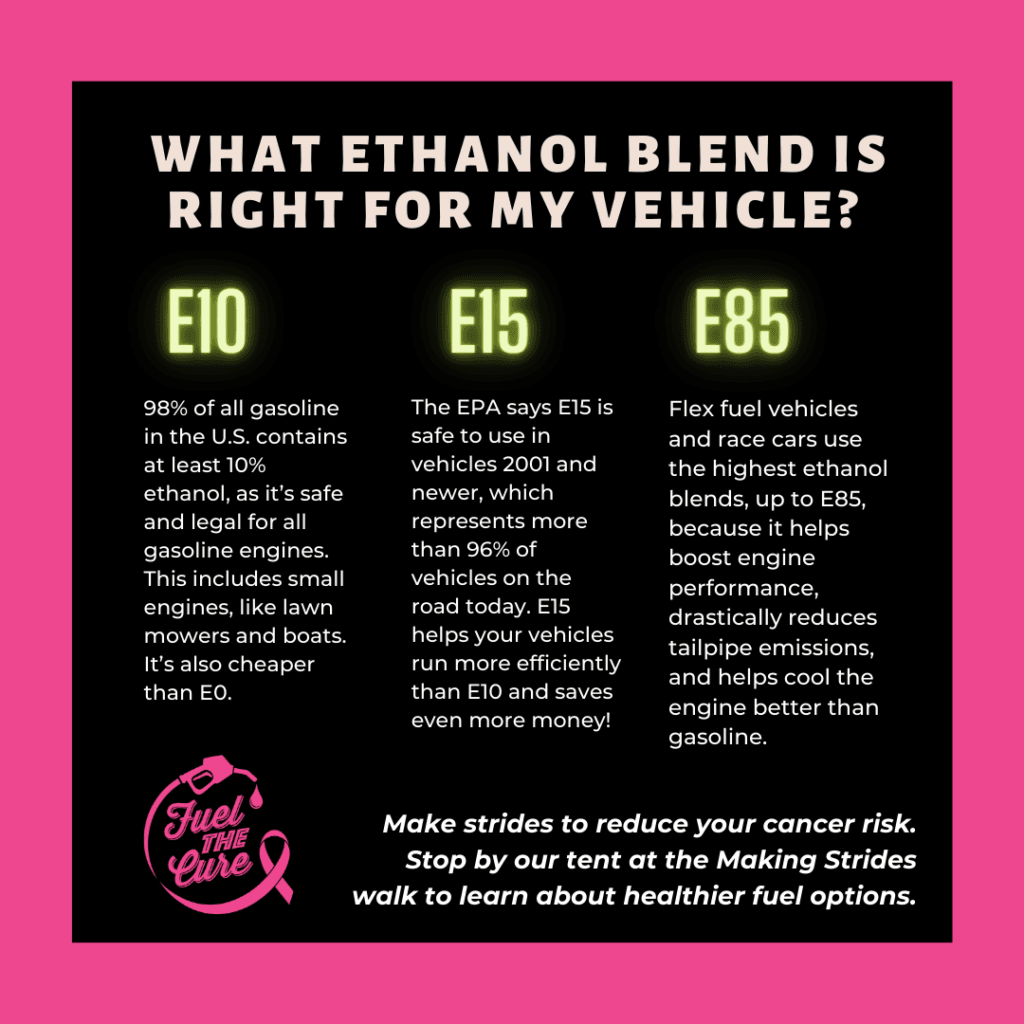
Fuel the Cure founders: Nebraska Ethanol Board; Nebraska Corn Board; and Renewable Fuels Nebraska, are already preparing for Fuel the Cure 2023 and would encourage Nebraska fuel retailers who sell higher ethanol blends to reach out to Jessica Sodeke, communications and outreach manager, at Jessica.sodeke@nebraska.gov for information about participating. Donations to the Buffett Cancer Center or American Cancer Society are also accepted from others interested in supporting this cause, including cancer organizations and ethanol facilities. Fuel the Cure sponsors the Lincoln Making Strides Against Breast Cancer Walk as well. To sign up to be a part of our 2023 walking team, please reach out to Sodeke.
